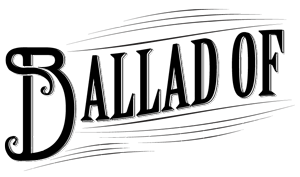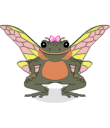Ballad Meets Phoebe Killdeer
Ding! Ding! Ding! It’s the home straight until Christmas, and what better way to procrastinate than to listen to some nice new music. Aaaaaaaaah. Phoebe Killdeer and the Short Straws have been popping up on our radar on and off, and so finally star Balladette Tess went off and interviewed her. Hurrah!
What’s the story behind your involvement with the group Nouvelle Vague? What brought you to move on to your current solo project?
I had started writing songs before Nouvelle Vague. My manager sent my demo to Marc Collins, the producer of Nouvelle Vague, who was looking for new singers for the second album. He liked my voice and I felt like it was fantastic opportunity. I loved the idea behind the project. So I toured with them for 3 years. I sang at about 250 shows, which was an incredible experience because as a singer you can really experiment when it’s not your project. You can really go out there and have fun with the project without the pressure of it being your own songs. You can really find yourself on stage. It was a huge learning curve for me and when I got close to who I thought I could be as a performer I was ready to do my own songs. I felt like I’d given everything I could to the project as well. I think they probably needed something new for the album coming up anyway. So Marc Collins said, “Let’s produce your new album together!”
Weather’s Coming comes off as a more jazz-influenced record. What brought about Innerquake and its more electric, louder sound?
The first album was a real recap of everything I’d ever been listening to. It had all of my influences and all of the ideas and songs I’d had for quite awhile. It stretched over maybe ten years or so. You can hear all the different styles that influenced my music in that first album. Then I met the Short Straws who I toured the first album with for about two and a half years. On tour we didn’t have horns [or other instruments we’d used on Weather’s Coming] so we replaced them with guitars redid the songs and changed them for the live sound. The sound developed from there, through four individuals working together and creating a sound. It became quite infectious! People were really liking it and so were we. We really felt we were going towards something. We wanted to do an album to really capture that sound we’d created. A lot of people would see us on stage and then buy the album and think, “Well this is different!” We’re really happy about the album. I think it’s a really good representation of what we can actually do live. I think we’re most comfortable on stage. We’re very happy with the album but I think on stage is even better.
Weather’s Coming has a certain quality about it that seems to address the parts of ourselves that we don’t like. Is this concept prevalent on Innerquake? Is it a continuation?
I think you just described Innerquake as well. Those themes are more prevalent on this second album. That’s why in the artwork [for Innerquake] I have this cross going across my face. People usually do that when they don’t like a photo they cross it out and say, “You can’t use that.” That’s what I’d done in a way, I was trying to portray that through your life you find these parts of yourself that you’re not necessarily “into.” You have to confront them and deal with them and change, or not. It talks about that mainly. It’s true that I’m mostly inspired by the human condition, the way we are and the way we are towards each other. The beauty and harshness of humanity and people. These are the themes that are very recurrent with my writing. I think we’re pretty amazing people on this planet! There’s some crazy stuff going on. It also talks about the fears that we have, like death, the end of the world, all of the fears that we might experience and might be thinking of. There’s another song that deals with adolescence and the social pressures that you have around that time, like sexual intercourse and how to deal with that.
How are the songs written in terms of lyrics and music composition?
I write all of the lyrics. My band, the Short Straws, composes the music. I don’t really play any instruments. I’ve got a guitar which I kind of hit occasionally and a keyboard and percussion instruments that I make demos or sketches and things like that for the songs. I did have a Hammond organ on stage on the last tour but I was just hitting it. [Laughs]
As the sole writer of lyrics, are you more interested in the literary aspect of lyrics or the way they sound and their resonance? Both?
They really work together. It’s interesting to take a word and depending on the way you place it and see how the way you use it is powerful. The dynamics of the word are so powerful. You just have to move the comma around and it means something completely different. I’ve always been a lover of words and I think that’s one of the reasons why a lot of my influences, like for example, Tom Waits and Nick Cave, are really incredible writers. They’re always playing with the meanings of the words and I just love all of that. I’m very passionate about it.
Are there any poets who inspire you?
I’m super interested in poetry. But there’s an author, Tom Spanbauer, who wrote The Man Who Fell In Love With The Moon. I don’t know if he’s written any poetry but I love that book so much. He’ll bend words. He’ll say, for example, “I’m staring at forever.” And everyone understands what he’s talking about. It’s very visual, it’s an image. Everyone should read this book, it’s fantastic. It’s very powerful the way he puts a picture in your head. Poetry is the same way, it’s very striking. I love it.<
What is your favorite or most influential Tom Waits album?
Ooh, that’s difficult. I love Swordfishtrombones, I love that period. But I love what he did on Real Gone as well. It’s so rich every time he puts out something. He really challenges himself in new areas. I love that and I love the Asylum [Records] years as well. Using the metallic sounds, the industrial sounds in his music. I think that’s what really caught me the first time I heard him when I was 8 years old. I heard his music and I was thinking, “Oh my god, what is that?” [Laughs] He was using sounds to make music, not necessarily instruments or things like that and I was really drawn to that aspect. Later I discovered the lyrics and the stories [in his lyrics] are incredible. But yes, the early period really drew me towards him. He’s just so different.
Any new bands or artists that you would recommend or are listening to right now?
I’m a real old timer, I listen to very few records over and over again and they’re very old. I did do a radio show a few weeks ago with Mina Tindle. She was very refreshing, and has a nice voice.
-Tess Duncan
Find out more at phoebekilldeer.com
Popular choices
- Casinos Not On Gamstop
- Non Gamstop Casinos
- Non Gamstop Casinos
- Casino Not On Gamstop
- UK Online Casinos Not On Gamstop
- Casino Sites Not On Gamstop
- Best Non Gamstop Casinos UK 2025
- Non Gamstop Casino Sites UK
- Slots Not On Gamstop
- Non Gamstop Casino Sites UK
- Non Gamstop Casinos
- Slots Not On Gamstop
- Sites Not On Gamstop
- Best Paying Slot Sites UK
- UK Casinos Not On Gamstop
- Casino Sites UK Not On Gamstop
- Non Gamstop Casino UK
- UK Casino Not On Gamstop
- Casinos Not On Gamstop
- UK Casino Sites Not On Gamstop
- Brand New Casinos Not On Gamstop
- UK Casino Not On Gamstop


